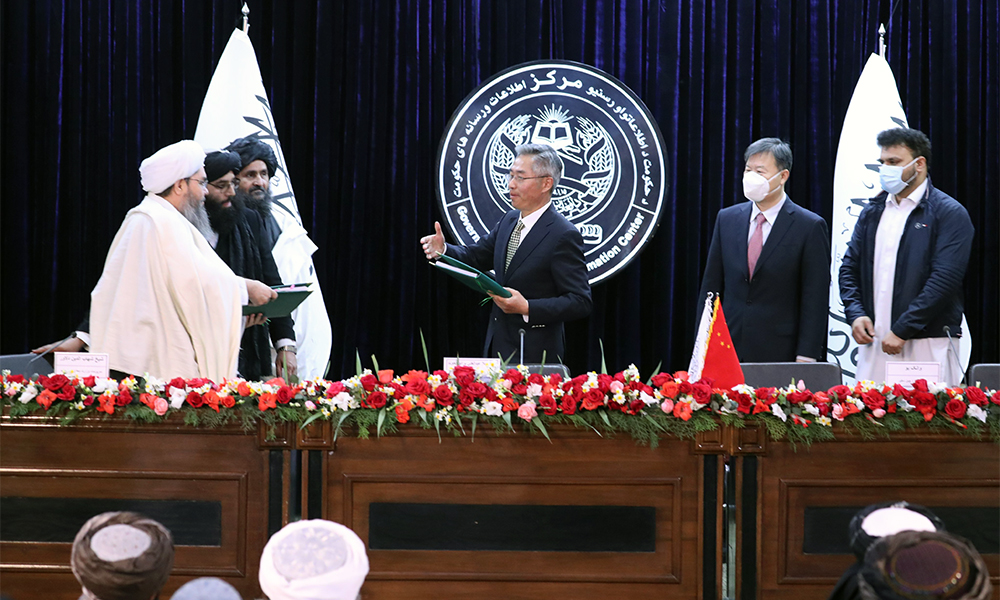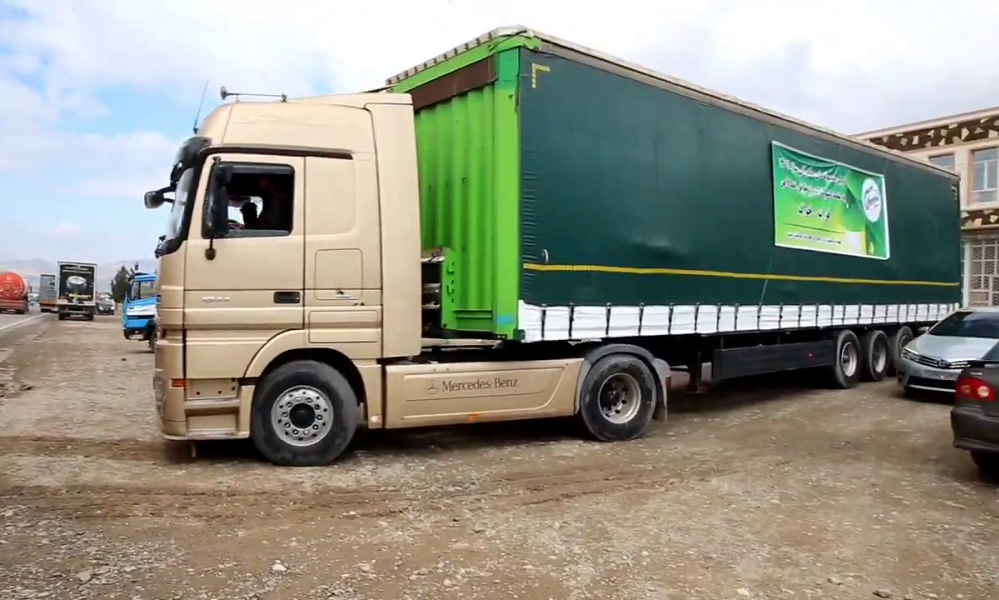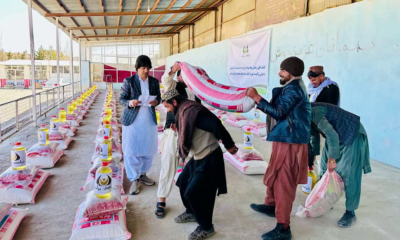Business
IEA signs Amu River basin oil extraction contract with Chinese company

Islamic Emirate of Afghanistan’s (IEA) officials signed a contract on Thursday with China’s CAPEIC (Xinjiang Central Asia Petroleum and Gas Co) Company for the extraction of oil in the Amu River basin, which covers a large area across parts of three northern provinces.
The signing ceremony was held at the Government Information and Media Center (GMIC) in Kabul, in the presence of Mullah Abdul Ghani Baradar Akhund, the Economic Deputy of the Prime Minister, and China’s ambassador to Kabul.
Speaking at the event, Sheikh Shahabuddin Delawar, the Minister of Mines and Petroleum, said: “According to the order of the Supreme Leader and the guidance of the Prime Minister and the Economic Deputy of the Ministry, today we will sign an oil extraction contract with a Chinese company.”
The ministry said oil will be extracted from an area covering 4,500 square kilometers across parts of Sar-e-Pul, Jawzjan and Faryab provinces.
Delawar said the rate of oil extraction will be from 1,000 to 23,000 tons per day and the company will invest up to $150 million dollars a year, which will increase to $540 million dollars in three years.
According to the contract, the Islamic Emirate will own a 20 percent share in the oil fields, but that in time this percentage will increase to 75 percent.
Delawar also said that 3,000 jobs will be created for Afghans. However, if skilled labor is not available in Afghanistan, then China will be able to import workers, he added.
He also said that it was agreed that if the Chinese company does not fulfill all its requirements within a year, the contract will automatically be canceled.
Mullah Abdul Ghani Baradar Akhund also spoke at the event and said that in the past year, work has been done to promote development in the country.
“Recently, several projects were approved by the Economic Commission, and with their implementation, fundamental steps will be taken regarding the prosperity of the country and public welfare,” Baradar said.
He said the signing of Thursday’s contract was an important step towards the country obtaining self-sufficiency. He also called on the Chinese company to work in accordance with international standards and to provide local people with public benefits.
Baradar also told the ministry of mines to closely monitor developments at the oil field so as to ensure the Chinese company fulfills its obligations.
China’s Ambassador to Afghanistan Wang Yu meanwhile said: “This contract is important for the economic growth and self-sufficiency of Afghanistan and is a good example of cooperation and interaction between the two countries.”
Wang asked the contracting company to carefully perform the assigned tasks according to the provisions of the contract and also asked the ministry to provide the framework for the effective implementation of the contract and to work closely with the contracting company.
Business
36 mining contracts inked over the past year: Mines ministry

The Ministry of Mines and Petroleum says it has signed 36 large and small mining contracts, with a total value of $1.3 billion over the past year.
Officials from the ministry stated that these contracts include 10 large mines, 25 small mines, as well as projects related to cement, salt, marble, and a major gas extraction contract with Uzbekistan, all signed with both domestic and foreign companies.
Meanwhile, economic experts have emphasized the importance of increasing investments in the mining sector for the country’s economic growth. They have stressed that priority in mining contracts should be given to domestic companies.
“It is better to prioritize domestic investors over foreign ones,” said Kamaluddin Kakar, an economic expert.
In the meantime, members of the private sector also stated that if both foreign companies and Afghan investors can partner in the mining sector, this will not only foster investment development in the country but also bring positive changes in capacity building within the mining extraction sector.
Business
Afghanistan ships first consignment to Europe via Khaf-Herat railway

The press office of the Herat governor has announced the export of Afghanistan’s first shipment via the Khaf-Herat railway to Europe.
According to a statement from the office, the shipment includes 200 tons of dried fruits worth $1.2 million, which were exported to Turkey and Europe through the Khaf-Herat railway in the presence of Islam Jar, the governor of this province, and the Iranian Consul General.
The exported dried fruits in this shipment include pistachios, raisins, almonds, and pine nuts.
The statement added that over the past three months, more than 35,000 tons of goods have been transferred via the Khaf-Herat railway.
Business
Russia’s LPG exports to Afghanistan boom as Europe shuns it
The exports to Afghanistan, the main consumer of Russia’s LPG in the region, rose by 52% for the period to 71,000 tons.

Russia’s exports of liquefied petroleum gas (LPG) to Afghanistan and ex-Soviet states in Central Asia have jumped following introduction of European Union sanctions against Moscow at the end of 2024, industry sources said on Wednesday, Reuters reported.
The European Union’s sanctions against Russia’s LPG over the war in Ukraine took effect on December 20. The restrictions were proposed last year by Poland, one of Russia’s largest LPG importers.
LPG, or propane and butane, is mainly used as fuel for cars, heating and to produce other petrochemicals.
According to the industry sources, railway supplies of LPG from Russia’s plants, including the Kazrosgas joint venture with Kazakhstan, jumped to the region by 80% year on year in January – February to 140,000 metric tons, read the report.
The exports to Afghanistan, the main consumer of Russia’s LPG in the region, rose by 52% for the period to 71,000 tons.
Traders expect great scope for more supplies to Afghanistan, where annual demand for LPG is seen at around 700,000 tons per year.
-

 International Sports5 days ago
International Sports5 days agoIPL 2025: Last over drama; Ashutosh Sharma clinches win for Delhi Capitals
-

 Regional5 days ago
Regional5 days agoEgypt makes new proposal to restore Gaza truce as Israeli strikes kill 65
-

 Sport4 days ago
Sport4 days agoAfghanistan eliminated from Asian Beach Soccer Championship
-

 Latest News4 days ago
Latest News4 days agoNorwegian Refugee Council cuts back on essential humanitarian services in Afghanistan
-

 Latest News4 days ago
Latest News4 days agoUN warns over 4 million Afghan girls will be deprived of education by 2030 if ban continues
-

 World4 days ago
World4 days agoSecretive Chinese network tries to lure fired US federal workers, research shows
-

 Latest News4 days ago
Latest News4 days agoDozens of needy families in Ghazni get much needed food aid from Bayat Foundation
-

 Sport4 days ago
Sport4 days agoAFC Asian Cup 2027 Qualifiers: Myanmar defeat Afghanistan 2-1
























